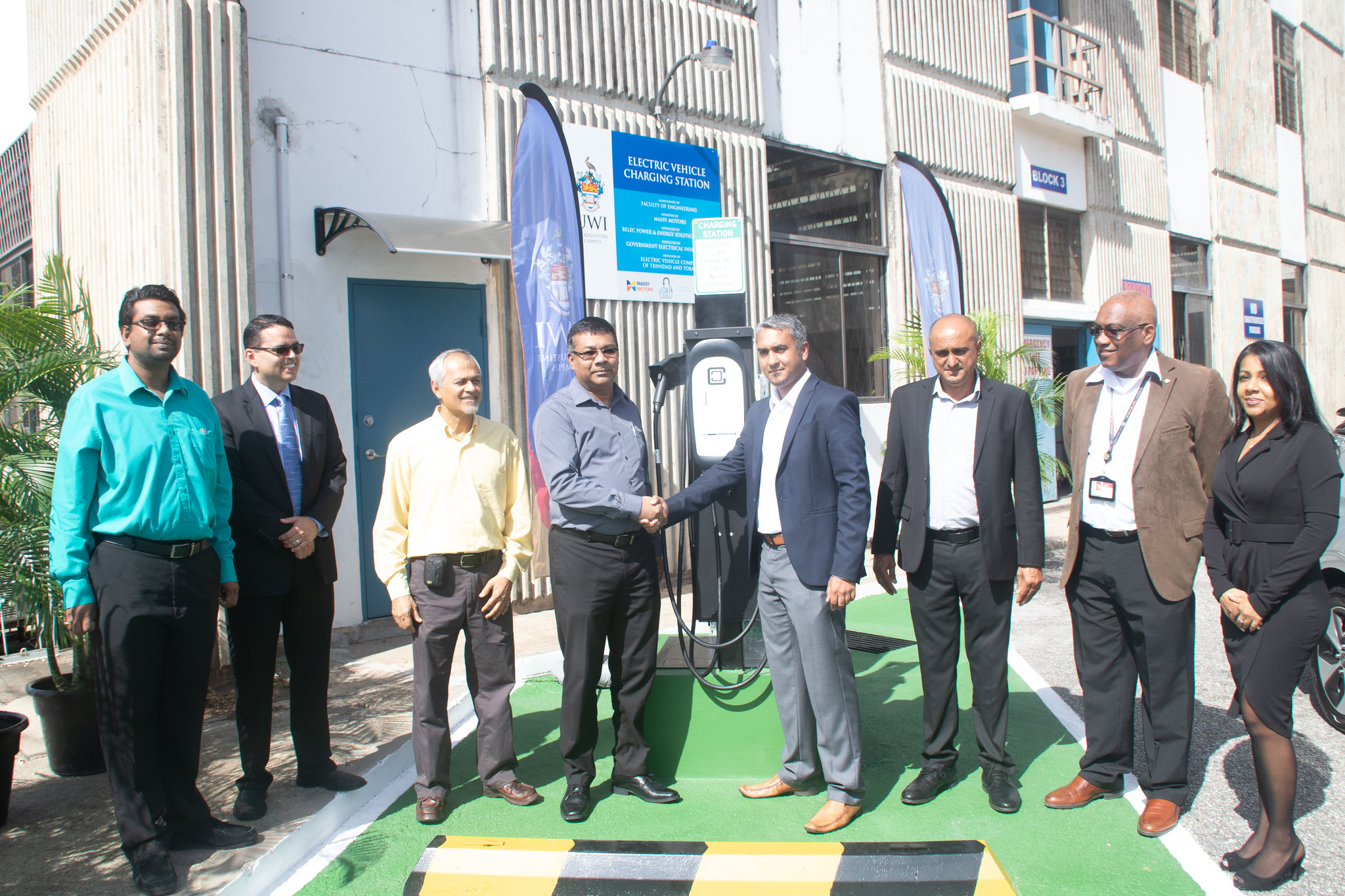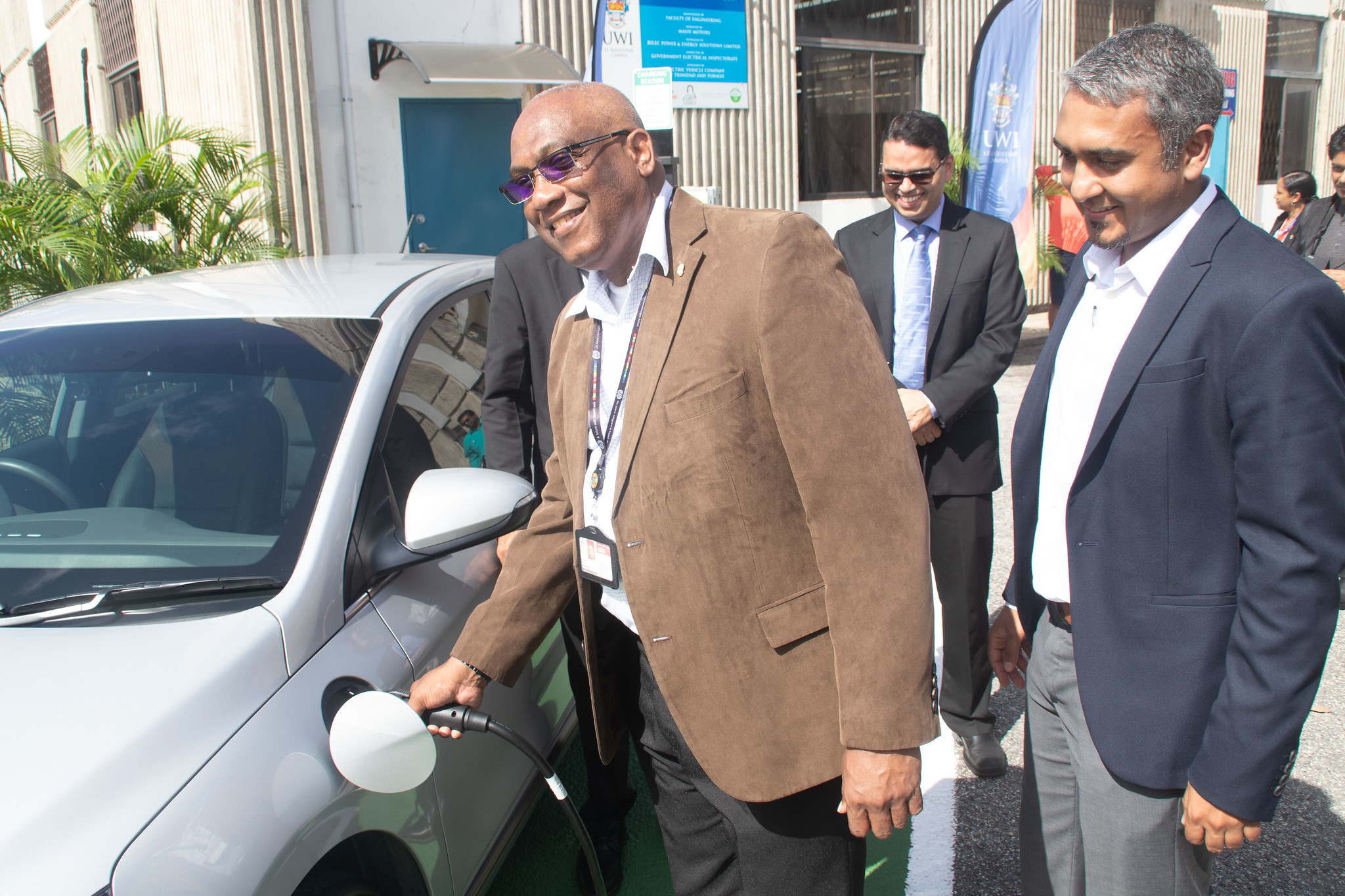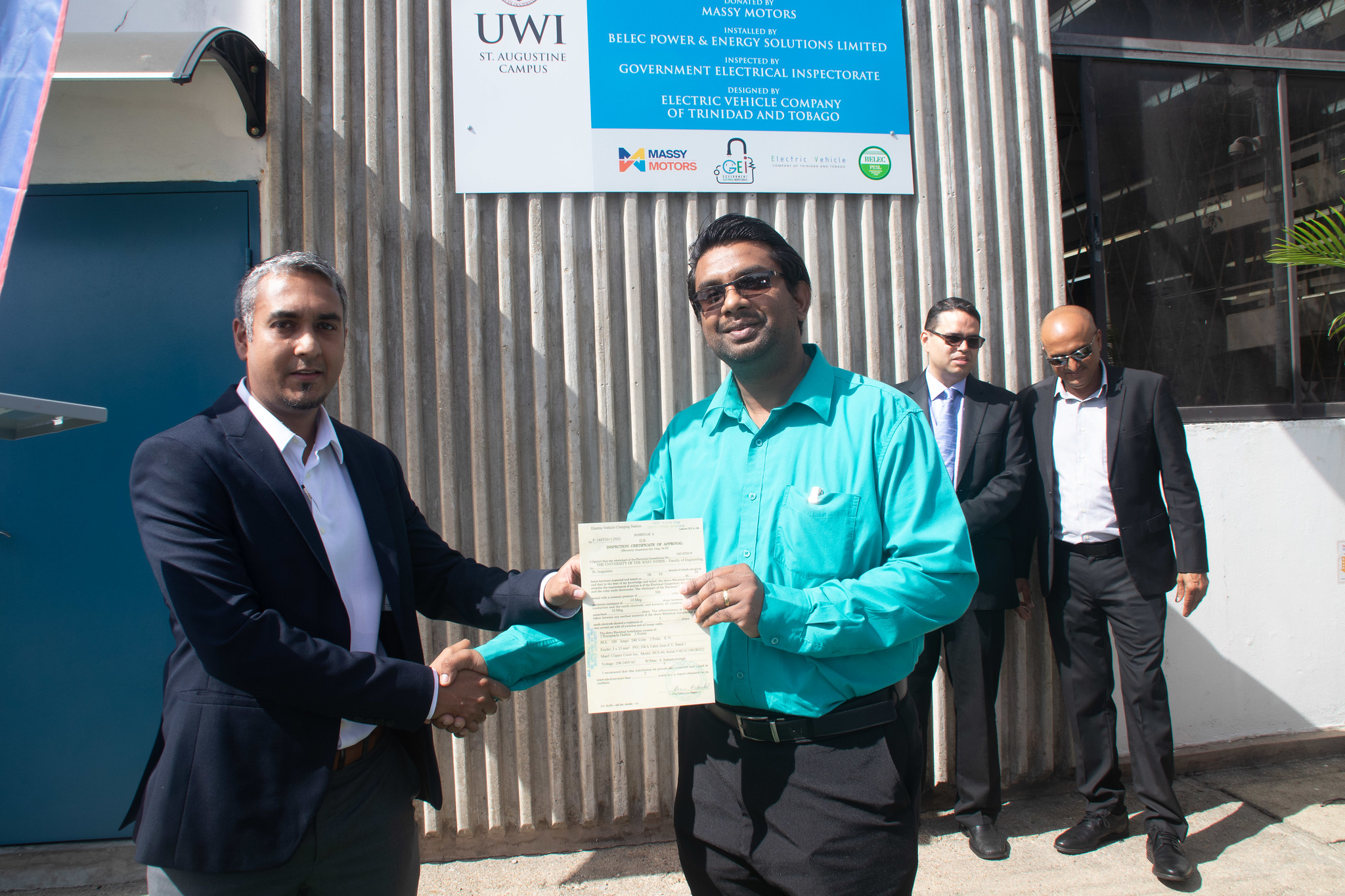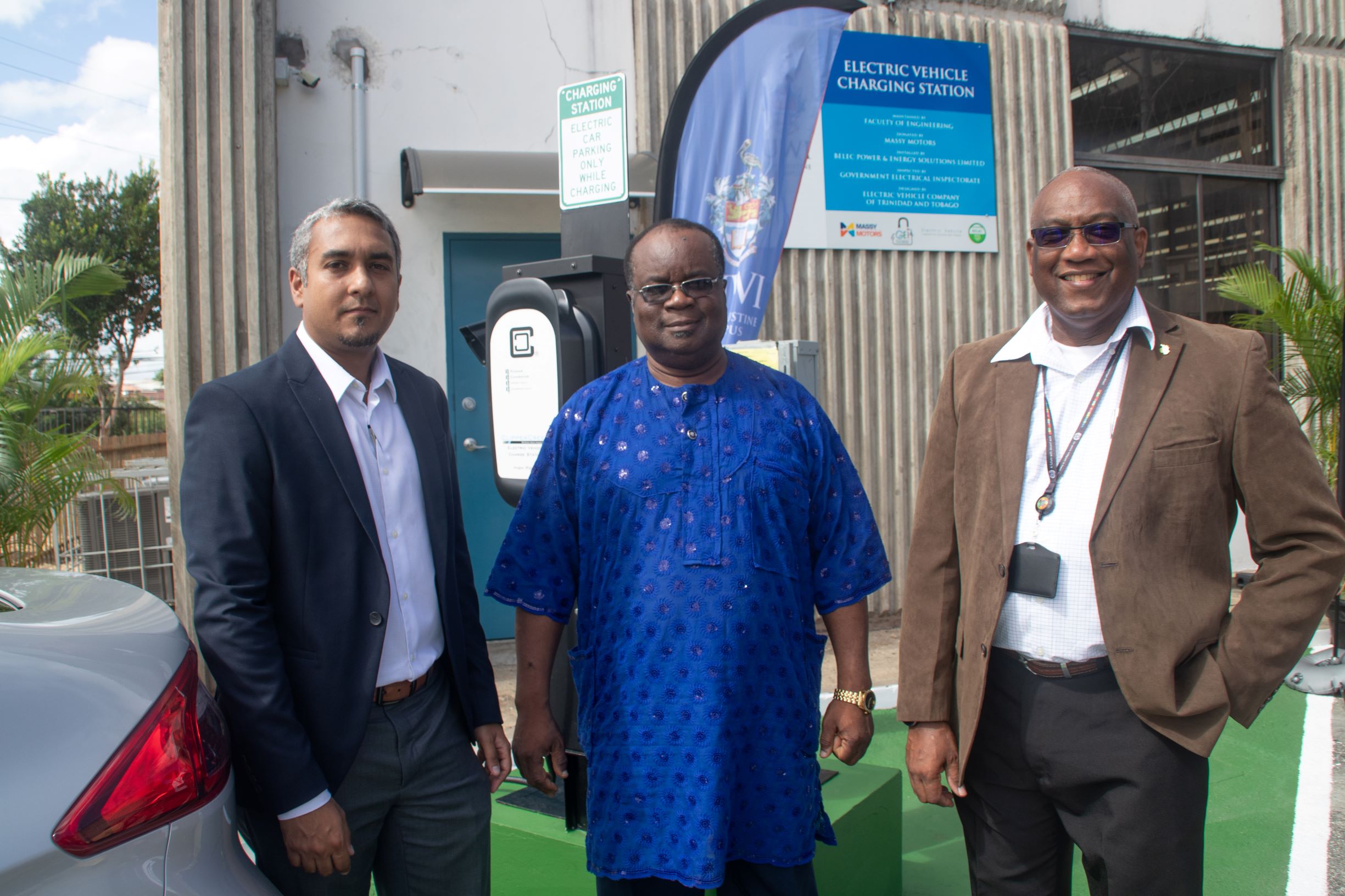News Releases
UWI St. Augustine’s First Electric Vehicle Charging Station Installed
For Release Upon Receipt - December 13, 2019
St. Augustine

As The UWI continues to make strides towards becoming a climate-smart university and lead in E-mobility research, the Faculty of Engineering at the St. Augustine Campus launched its first Electric Vehicle Charging Station on Tuesday, December 10. The project was a collaborative effort of the Faculty of Engineering with Massy Motors, BELEC Power and Energy Solutions Limited, the Government Electrical Inspectorate (GEI) in the Ministry of Public Utilities, and the Electric Vehicle Company of Trinidad and Tobago.
It is the first Level Two, 230-volt station in Trinidad and Tobago to be successfully installed and inspected by the GEI. The launch featured an on-site demonstration of the use of the charging station which allows electric vehicles to fully charge in just over four hours. A typical electric car (60kWh battery) takes just under eight hours to charge.
Pro Vice-Chancellor and Campus Principal Professor Brian Copeland attended the launch along with representatives of the partner companies and other project partners. He was also given the opportunity to use the charging station.
Dr. Sanjay Bahadoorsingh, Deputy Dean, Enterprise Development and Outreach and Senior Lecturer in the Department of Electrical and Computer Engineering, led the execution of the project.
“The global future of transportation is electric and The UWI has an opportunity to actively demonstrate its capacity to encourage and adopt this transportation revolution in Trinidad and Tobago,” he said. He further explained that encouraging the use of electric vehicles will help to reduce the Campus’ carbon footprint.
Earlier this year, the International Association of Universities (IAU) selected The UWI as its global leader in the mobilisation of research and advocacy for the achievement of a climate-smart world. The St. Augustine Campus is also the Caribbean Centre for Renewable Energy and Energy Efficiency’s hub for E-mobility, and is leading the region in E-mobility research. This project will assist the Faculty of Engineering in further research on E-mobility; including the impact on the nation’s power system and the conversion of gasoline and diesel engines to electrical power trains. Future plans for this project include employing renewable energy technologies to power the electric charging stations.
The charging station is open for use by students, staff and invited visitors to the Campus. It is located at the parking spot bordering the Faculty of Engineering Building on the southern side of Campus, close to the south gate.
End
Notes to Editor:
To access more photos from the launch event please visit:
https://www.flickr.com/photos/theuwi/albums/72157712174175392



End.
About The UWI
For over 70 years The University of the West Indies (The UWI) has provided service and leadership to the Caribbean region and wider world. The UWI has evolved from a university college of London in Jamaica with 33 medical students in 1948 to an internationally respected, regional university with near 50,000 students and five campuses: Mona in Jamaica, St. Augustine in Trinidad and Tobago, Cave Hill in Barbados, Five Islands in Antigua and Barbuda and an Open Campus. As part of its robust globalization agenda, The UWI has established partnering centres with universities in North America, Latin America, Asia, and Africa including the State University of New York (SUNY)-UWI Center for Leadership and Sustainable Development; the Canada-Caribbean Studies Institute with Brock University; the Strategic Alliance for Hemispheric Development with Universidad de los Andes (UNIANDES); the UWI-China Institute of Information Technology, the University of Lagos (UNILAG)-UWI Institute of African and Diaspora Studies and the Institute for Global African Affairs with the University of Johannesburg (UJ). The UWI offers over 800 certificate, diploma, undergraduate and postgraduate degree options in Food & Agriculture, Engineering, Humanities & Education, Law, Medical Sciences, Science & Technology, Social Sciences and Sport.
As the region’s premier research academy, The UWI’s foremost objective is driving the growth and development of the regional economy. The world’s most reputable ranking agency, Times Higher Education, has ranked The UWI among the top 600 universities in the world for 2019 and 2020, and the 40 best universities in Latin America and the Caribbean for 2018 and 2019. The UWI has been the only Caribbean-based university to make the prestigious lists. For more, visit www.uwi.edu.
Contact
Marketing and Communications Department
- Tel.: (868)-662-2002 ext.2013/2014
- Email: marketing.communications@sta.uwi.edu

